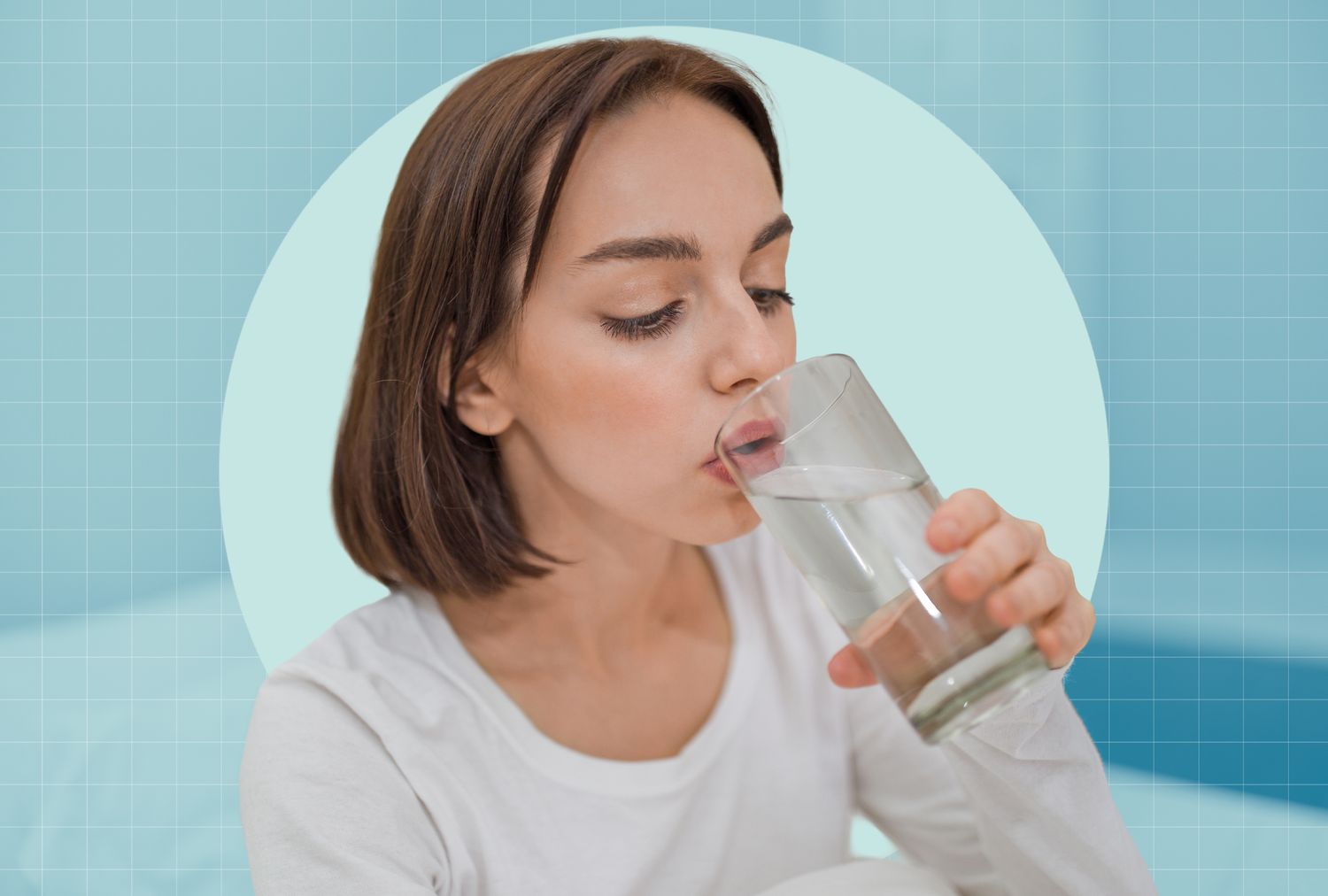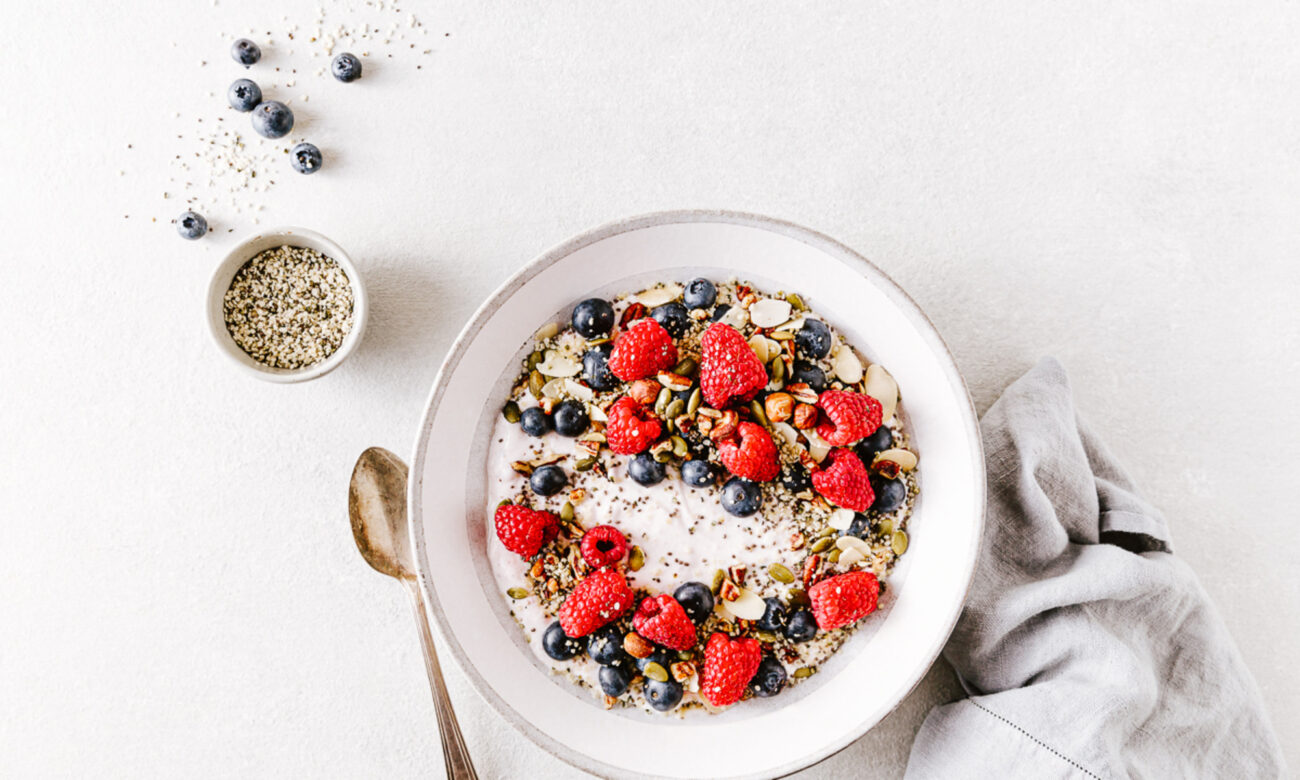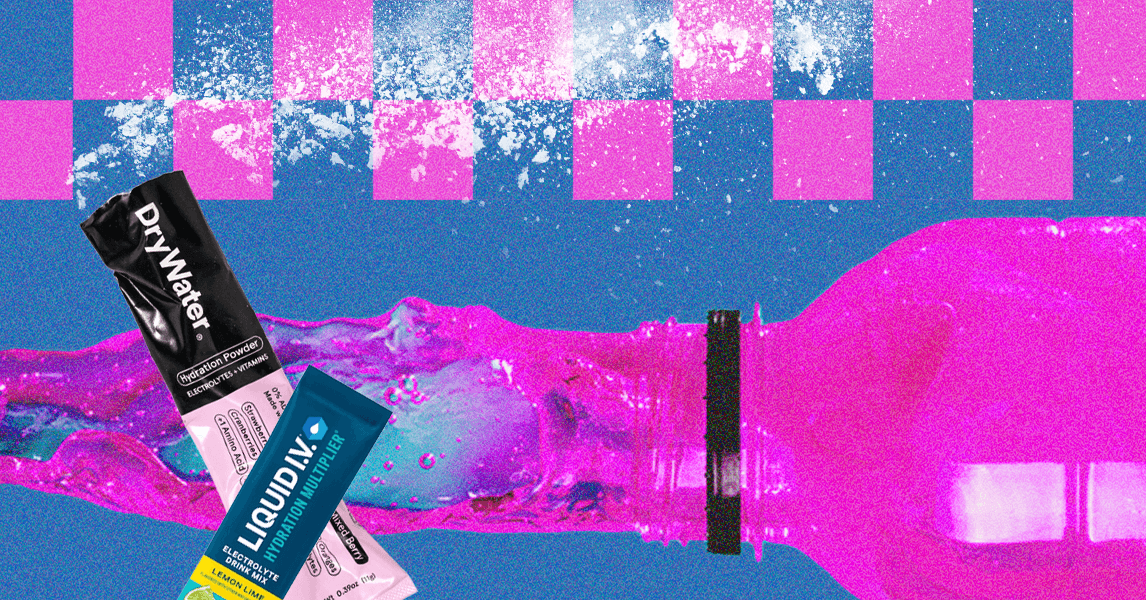Blog
Experts Explain the Benefits of Front-Loading Water Intake

- Staying hydrated helps manage your overall health and various factors affect individualized needs.
- Drinking water earlier in the day may support your weight, focus, sleep, digestion and more.
- To get more water in the a.m., keep a glass near your bedside and track your intake via an app.
Portable water bottles are all the rage—they also serve as a convenient reminder to drink water, which is essential, given that it makes up approximately 60% of the human body. Meeting your hydration needs, which vary based on gender, activity level, medications, body weight, environment and fluid loss, is easier to do when you always have water on hand and are able to drink it throughout the day.,
But what about drinking water earlier in the day? Is there an upside to drinking a tall glass in the morning? While overall daily fluid consumption is important, frontloading your water intake earlier in the day may have its benefits. “I recommend drinking water, particularly first thing in the morning because of the importance of rehydration after sleeping, the digestive, cognitive and metabolic health benefits and support of healthy habits,” says Amy Shapiro, M.S., RD, CDN.
Read on to learn more about these potential health benefits and your fluid needs, plus tips for drinking water and how to get more of it earlier in the day.
Benefits of Drinking Water Earlier in the Day
The amount of water you need daily should be personalized. Shapiro says, “Needs vary based on age, weight, gender, etc., but I usually recommend 80 to 100 ounces per day. A good rule of thumb is to aim for half your body weight in ounces of water daily as a baseline, then adjust based on factors like exercise, temperature or pregnancy.”
The Institute of Medicine (IOM) has established Adequate Intake levels (the amount needed to prevent the effects of dehydration) for total water, which includes drinking water, water from food and beverages. According to the IOM, women have a minimum of 2.7 liters (about 90 ounces) of water, and men should aim for 3.7 liters (about 125 ounces) of water each day.
That said, while dehydration is a concern, overhydration can lead to hyponatremia, a condition that occurs when your sodium levels are too low. Alyssa Pacheco, RD, says, “Low sodium levels can cause headaches, confusion, or in extreme cases, seizures.”
Pacheco notes that if you are going to the bathroom every 30 to 60 minutes or if your urine is not light yellow but completely clear or colorless, you might be overhydrating. She says, “Some people swell or become puffy if they are drinking too many fluids, which requires medical attention, as it could be a sign of a serious medical condition. In more extreme cases, confusion, brain fog, muscle cramping, nausea and vomiting may occur.”
Supports Weight Management
Drinking water first thing in the morning before breakfast may help with weight loss. Pacheco shares, “Drinking water on an empty stomach can be beneficial—it can help decrease the number of calories consumed at the next meal.”
Research has shown that drinking water (about 2 cups) before any meal may reduce perceived hunger, resulting in consuming approximately 75 calories less at that meal. Other studies have found that drinking about 2 cups of water premeal resulted in losing 2.9 to 4.4 more pounds over 12 weeks compared to the control groups.
Rehydrate After Sleeping
Sleep is one of the longest periods of time without fluid consumption, which may lead to mild dehydration, impairing your mood and digestion, notes Pacheco. “We lose water through breathing and sweating overnight, even if you do not realize it. Drinking water in the morning helps restore normal hydration levels, which supports energy and focus,” says Shapiro.
One study found that drinking water after a fast improved visual attention, which allows us to focus and filter out distractions. You can eat breakfast while you drink or wait—it comes down to personal preference. Pacheco says, “Some people may prefer to wait a little while, such as thirty minutes, to prevent feeling too bloated while eating, but this is mostly personal preference.”
Jumpstart Digestion and Metabolism
Water is important for digestive health, including removing waste, transporting and absorption of nutrients, and promoting regular bowel movements. Dehydration can lead to constipation, so drinking water first thing in the a.m. may help to prevent any backup from occurring.
“Water can help stimulate the GI tract and may support a bowel movement in the morning,” says Shapiro. Additionally, adequate water intake is important for digestion and the absorption of nutrients.
Get Better Quality Sleep
We each have unique fluid needs depending on a number of factors, and it’s important that we meet our needs to stay hydrated. This can be hard to do with the many obligations, meetings, errands, etc., that make up our day. Getting a jump start on your water intake earlier in the day likely means you have less to drink later in the day, especially before bed. Drinking water and other fluids an hour or two before bed may mean frequent bathroom breaks throughout the night, disrupting your sleep. Getting adequate, quality sleep is linked to a healthier weight and immune system, improved mood and brain function, with less stress and a reduced risk of some chronic diseases like diabetes and heart disease.
Helps with Focus
If you use the bathroom in the morning and notice that your urine is a darker yellow, then you could be mildly dehydrated. Shapiro says, “Even mild dehydration can lead to fatigue, brain fog, and reduced concentration. Starting your day with water helps rehydrate brain cells and supports optimal cognitive function.”
May Make it Easier to Build a Healthy Habit
What we do first thing in the morning can be a catalyst for making healthy lifestyle changes throughout the day. In fact, research shows that repeating a behavior, i.e., creating a habit, may be easier to do in the morning compared to later in the day. “Hydrating first thing can be an anchor habit, setting the tone for the day and can remind you to make other positive choices, like eating breakfast or moving your body,” says Shapiro.
Tips to Drink Water Earlier in the Day
“Drinking water is essential for every function in our bodies. It helps to regulate body temperature, transport nutrients and oxygen, supports digestion and lubricates joints,” says Pacheco. Here are some tips to help frontload your water intake in the morning.
Keep water at your bedside. Keep a cup (or two) of water near your bedside. A carafe works well (and is decorative), but a simple glass or bottle of water works too.
Work it into your morning routine. Pack it with you on your morning walk or trip to the gym. Drink it right away or sip it during your morning routine.
Add variety and flavor. Add fresh fruit or herbs for extra flavor and nutrition. Consider making a flavorful pitcher the night before to eliminate another morning task.
Track it on your phone. Download a hydration app that sends a notification reminding you to drink up first thing in the morning. A habit tracking app may work as well.
Our Expert Take
Drinking water is important for overall health and well-being. You can reach your fluid goals by consuming beverages like water and hydrating foods like fruits and vegetables. Consider starting your day with a tall, refreshing glass to help meet your fluid needs, replenish water that has been lost overnight, support your weight management goals and wake up your brain and gut. Drinking water in the morning may be an easier habit to build than waiting until later in the day, too. If you don’t prefer plain water, flavor it with fresh produce or herbs.












